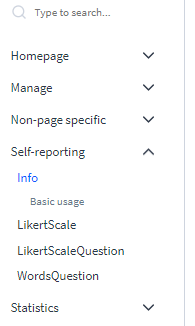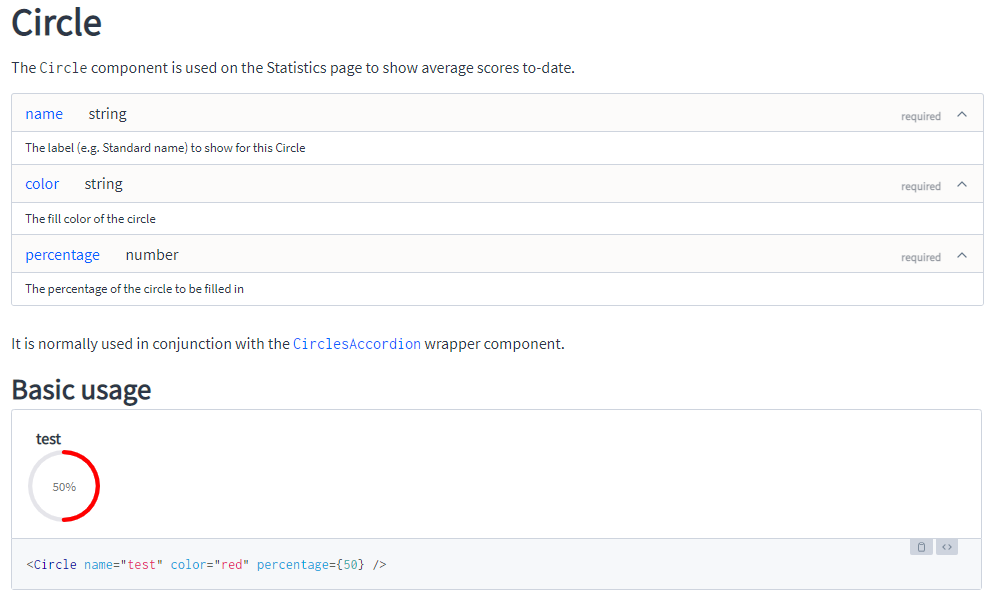Week 17: Documentation & Meeting Our Users
This week we worked on writing further documentation for our platform and met with our users to discuss their first experiences of the platform.
Meeting our users
We met the group of clinicians over a ~40 minute video call this week. Up till now we were only communicating with them via our client, or via the Trello board set up by our client, so it was great to finally meet them and see their passion for the platform.
We discussed various issues and queries during the call, including but not limited to:
- Clarifying how the Training URLs work and their purpose
- Talking about the updated word cloud (enabled vs barriers) and how this now works
We also put forward some of our own ideas to solve some of their concerns:
-
Prompting actions based on responses
Our users suggested showing a popup when a user selected a low-scoring option in the Likert Scale questions, ‘nudging’ them to start a conversation with their manager if neccessary.
We proposed an alternative method where the Statistics page displays various ‘analyses’ of a user’s scores and suggests possible actions that can be taken by defining certain internal thresholds for each standard, for example “Your confidence in the Timely Care standard seems to have dropped recently, please consider talking to your manager or engaging in a mentoring session to discuss this further”.
However, due to our limited time left on the project, we have informed the users that we have added this to our list of functionality to be added, however cannot promise we will be able to deliver on this by the end of the project.
-
Adding text-based questions to the self-report
Our users suggested adding a free text-based open-ended question after every Likert Scale question to allow clinicians to reflect more thoroughly on questions and be able to look back on their responses as time goes on.
We proposed instead a single text-based question at the end of the self-report, as we did not want to overwhelm users when they came to the self-report, which may have occurred if there were too many questions at first sight.
We additionally suggested this approach would simplify the visualisations of these text-based questions as we could add them to the graph tooltip when users are looking at their own responses, without cluttering the page/graph too much.
As with the previous issue however, we have cautiously advised that we may not have enough time in the project to implement this but will aim to do it as best we can in the time given.
We found this meeting to be extremely productive and useful, and look forward to the platform being used in the day-to-day lives of our users and the health board as a whole.
Documentation
We continued working on documentation this week, as part of our goal to make the system as simple as possible for future developers to take over, and to make the codebase as maintainable and understandable as possible.
Frontend
We continued and finished writing the frontend component documentation this week using Docz. We clearly documented each component on our platform, from the smallest components (like the <Info> used in the likert scale questions) the biggest most complex components (like the <CustomTable> used in the manage pages). We split the components into sections corresponding to the pages in our platform. This makes it easier to understand how the components combine together to create the platform, this shown below with the “Self-reporting” section open and showing its components:

For each component we documented what it does, the props it uses (if any), where it is normally used and also a “playground tool” where you can play with the component to see how it exactly works and what it is capable of:

Backend
We have continued to write the Swagger/OpenAPI API specification for our REST API this week, and aim to complete this by the end of next week.
Next steps
As we are now coming to a close with our documentation efforts, we will now aim to look at testing and creating an initial test suite for the platform.
We will continue with any final development left before working on the potential expansions mentioned earlier following our meeting with the users.